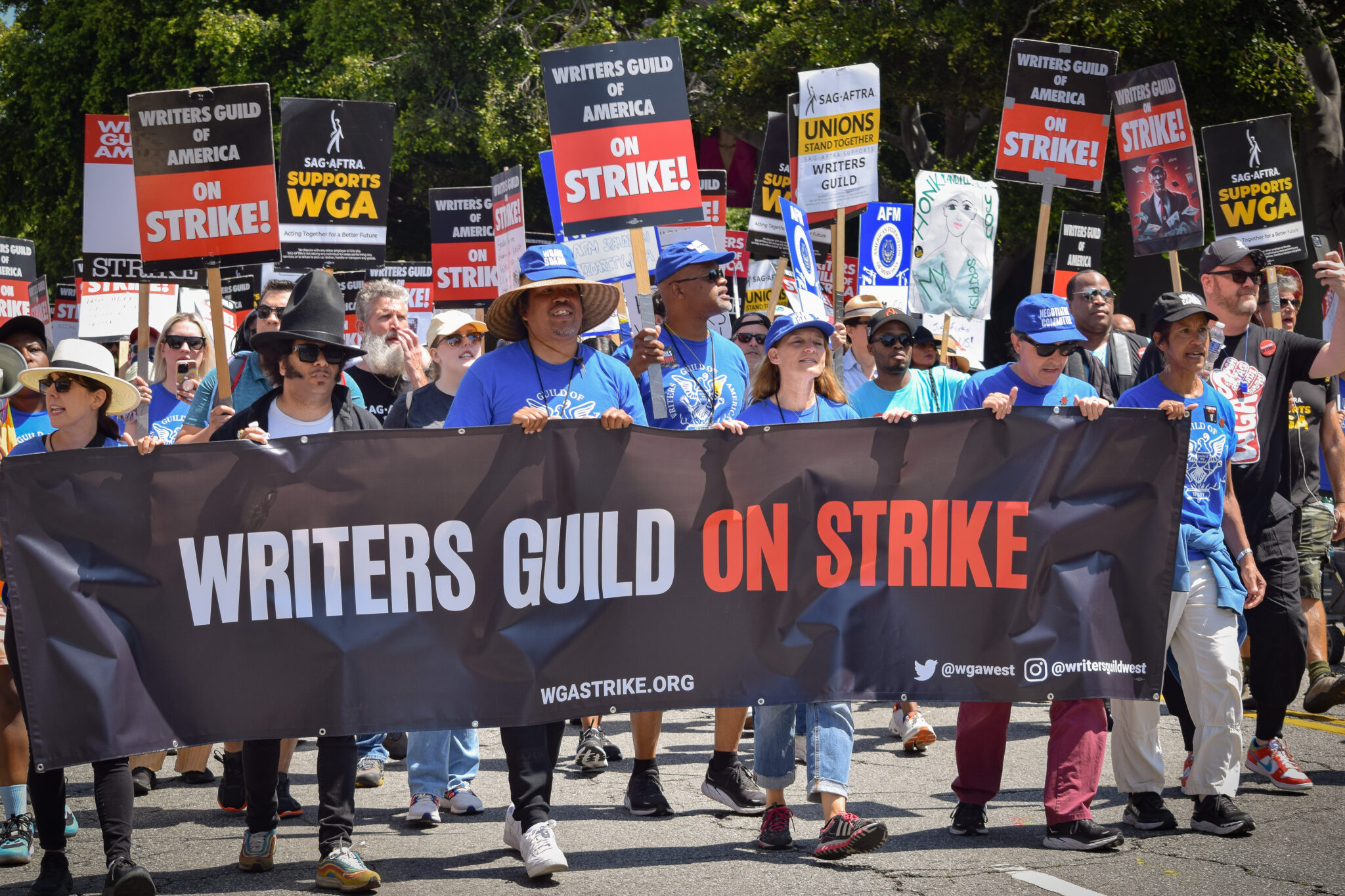
Morgan Sperry is a student at Harvard Law School and also serves as OnLabor's Social Media Director.
In today’s news and commentary, WGA reaches a deal, Canadian workers ratify a new contract with Ford Motors, and conservatives embrace the language of populism to push women into marriage.
The Writers Guild of America (WGA) reached a tentative deal with the Alliance of Motion Picture and Television Producers (AMPTP) late Sunday night after a record 146-day-long strike. The deal, described by the union as “exceptional,” includes concessions from the producers on most of the writers’ demands, including increased royalty payments for streaming content, minimum staffing of writers’ rooms, and assurances that artificial intelligence will not displace writers. WGA leadership has informed its 11,000 striking writers to stop picketing, but writers will not go back to work until the contract is ratified by WGA membership. Notably, the agreement comes only a week after the California legislature passed Senate Bill 799, which would make striking workers eligible for unemployment insurance. The Bill, once signed, will weaken employers’ economic bargaining power by guaranteeing striking workers funds to cover expenses like food and rent.
On Sunday, the Canadian labor union Unifor announced that its members have voted to ratify a new contract with Ford Motor. The union’s members at Ford ratified a new three-year agreement that includes wage increases of up to 25 percent, including 10 percent for the first year followed by a 2 percent increase through the second year and 3 percent increase through the third year, plus a $10,000 productivity and quality bonus to all active employees. The deal enables Ford to avoid Canadian plant walkouts while the United Automobile Workers in the United States continue to strike the company.
In her latest longform piece for The Cut, Rebecca Traister observes that conservatives have begun deploying populist language to promote marriage as a solution to structural economic inequality. Against the background of a cultural shift that has rendered a slim majority of today’s middle-aged adults unmarried, conservative writers (and even some lawmakers) are presenting marriage as an advantageous proposition for those experiencing economic disenfranchisement. Traister notes that in his new book, Get-Married: Why Americans Must Defy the Elites, Forge Strong Families, and Save Civilization, Brad Wilcox—who is the head of the University of Virginia’s National Marriage Project—co-opts populist language in service of a decidedly conservative project: pushing women into marriage. Traister summarizes Wilcox’s thesis as “[s]tick it to the elites by getting married — rather than, say, taxing them, or unionizing, or redistributing their wealth via the closing of corporate loopholes.”






Daily News & Commentary
Start your day with our roundup of the latest labor developments. See all
July 1
In today’s news and commentary, the Department of Labor proposes to roll back minimum wage and overtime protections for home care workers, a federal judge dismissed a lawsuit by public defenders over a union’s Gaza statements, and Philadelphia’s largest municipal union is on strike for first time in nearly 40 years. On Monday, the U.S. […]
June 30
Antidiscrimination scholars question McDonnell Douglas, George Washington University Hospital bargained in bad faith, and NY regulators defend LPA dispensary law.
June 29
In today’s news and commentary, Trump v. CASA restricts nationwide injunctions, a preliminary injunction continues to stop DOL from shutting down Job Corps, and the minimum wage is set to rise in multiple cities and states. On Friday, the Supreme Court held in Trump v. CASA that universal injunctions “likely exceed the equitable authority that […]
June 27
Labor's role in Zohran Mamdani's victory; DHS funding amendment aims to expand guest worker programs; COSELL submission deadline rapidly approaching
June 26
A district judge issues a preliminary injunction blocking agencies from implementing Trump’s executive order eliminating collective bargaining for federal workers; workers organize for the reinstatement of two doctors who were put on administrative leave after union activity; and Lamont vetoes unemployment benefits for striking workers.
June 25
Some circuits show less deference to NLRB; 3d Cir. affirms return to broader concerted activity definition; changes to federal workforce excluded from One Big Beautiful Bill.